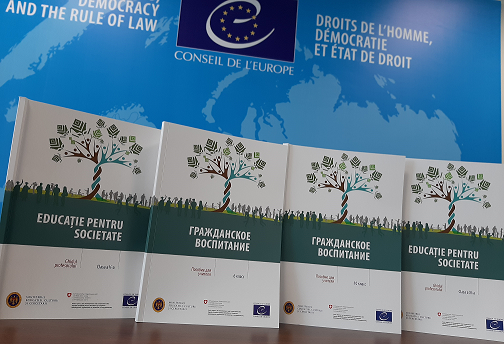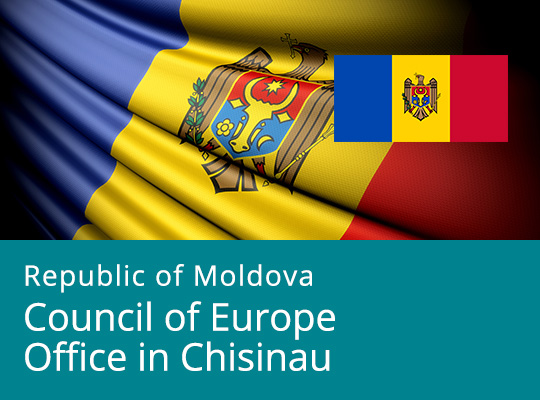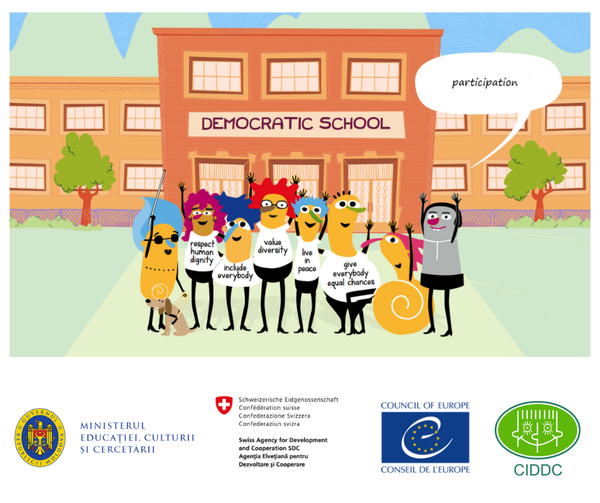Civic education teachers throughout Moldova received handbooks for teaching the new civic education subject “Education for society” based on the Council of Europe’s Reference Framework of Competences for Democratic Culture. The handbooks were developed and printed by the Council of Europe Project “Education for Democracy in the Republic of Moldova”, funded by the Swiss Agency for Development and Cooperation (SDC). The Ministry of Education, Culture and Research ensured their distribution in every educational institution in the country during September 2020.
The teacher’s handbooks are practical instruments designed to support Moldovan teachers to apply the new competence-based civic education curriculum developed by the Ministry of Education, Culture and Research of the Republic of Moldova with Council of Europe (CoE) support in 2018. The new subject has been gradually introduced in schools starting in September 2018 and is currently taught in most secondary school grades.
The handbooks (for grades V, VI, X and XI) contain a methodological overview explaining the 20 competences included in the curriculum as per the CoE’s Reference Framework of Competences for Democratic Culture, as well as detailed lesson plans. Before being printed, the handbooks were piloted during the school year 2019/2020. The authors – a team of international and national experts – considered the lessons learned from the one-year pilot implementation, as well as students’ and teachers’ feedback.
“The elaboration of the teacher’s handbooks is perfectly synchronized with the gradual implementation of the new civic education subject “Education for society” based on the promotion of a holistic approach of values, attitudes, skills and knowledge and critical understanding and democratic governance of schools in line the CoE Reference Framework of Competences for Democratic Culture”, stated Igor Sarov, Minister of Education, Culture and Research, in the handbooks’ foreword.
William Massolin, Head of the CoE Office in Chisinau, said that the project “Education for Democracy in the Republic of Moldova”, implemented with financial support of the Swiss Agency for Development and Cooperation, focuses on the implementation of the re-conceptualised civic education subject and promotes the CoE approach to citizenship education. “The Teacher’s Handbooks are designed to support the teachers in planning and carrying out the “Education for society” classes. It is a practice tool which we really hope you will find very useful in your everyday work”, said William Massolin.
The CoE is now developing and piloting in all Moldovan schools the teacher’s handbooks for the grades VII and XII. The publications will be revised based on lessons learned from one-year pilot implementation and teachers’ feedback and will be printed next year.
Ghidul profesorului Educatie pentru societate clasa 5, RO
Ghidul profesorului Educatie pentru societate clasa 5 RU
Ghidul profesorului Educatie pentru societate clasa 6 RO
Ghidul profesorului Educatie pentru societate clasa 6 RU
Ghidul profesorului Educatie pentru societate clasa 10 RO
Ghidul profesorului Educatie pentru societate clasa 10 RU









